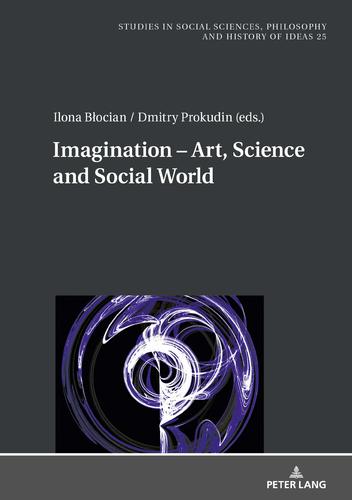
IMAGINATION – ART, SCIENCE AND SOCIAL WORLD
by Ilona Blocian and Dmitry Produkin (eds.)
Summary
The book contains analyses and interpretations of multidimensional perspectives in philosophical, economical and psychological research on imagination. The authors analyse Russian (N. Bierdiajew) and French philosophy and anthropology (G. Bachelard, G. Durand), German conceptions (I. Kant's, F. Baader's, F. Schiller 's or Heideggerian interpretations) of the role of imagination in art, science and sociopolitical domains. Image and imagination play the main role in the contemporary social world. It is investigated by psychology, sociology and political sciences, and many subdisciplines of philosophy have their own traditions in approaches to image and imagination problem. The authors try to integrate the results of these research efforts.
Series: Studies in Social Sciences, Philosophy and History of Ideas (Book 25)
Hardcover: 208 pages
Publisher: Peter Lang GmbH, Internationaler Verlag der Wissenschaften; New edition (March 25, 2020)
Language: English
ISBN-10: 3631800924
ISBN-13: 978-3631800928
About the Author
Ilona Błocian is Associate Professor in the Institute of Philosophy, University of Wrocław, Poland. Her scientific interests include: anthropology of an image, philosophy of images, research on myth, philosophical conceptions of man, sociological approaches to the process of acquiring culture, personality and culture, psycho-culturalism, history of the conceptions of the unconscious, history of psychoanalysis, C. G. Jung's conception and G. Bachelard's conception.
Dmitry Prokudin is Associate Professor in the Institute of Philosophy, University of Saint Petersburg, Russia. His scientific interests include information society, information culture, digital culture and information and communication technology (ICT).